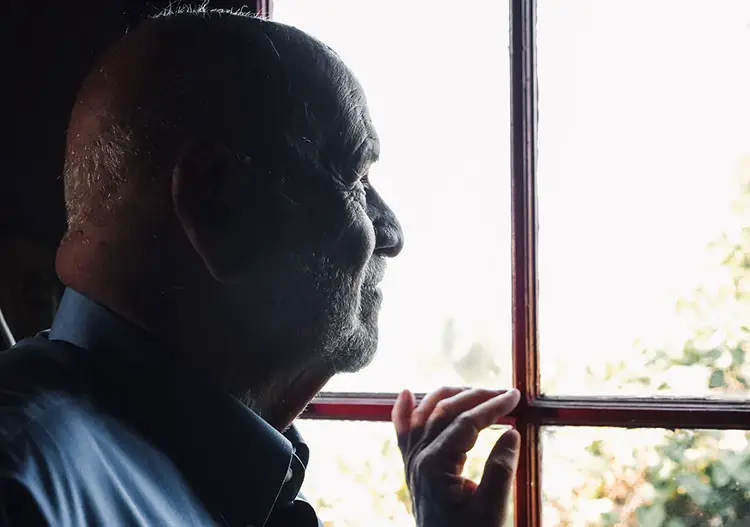In the United States, women tend to outlive men by several years. That’s why you find plenty of articles on helping a widow, but little advice on how to help a widower. I found this out firsthand when my mother passed away.
Consider these statistics:
The estimated number of widowed persons worldwide in 2020 is approximately 350 million, with the large majority, approximately 80 percent, being widowed women. While globally about one out of every 15 people in the marital ages are widowed, country rates vary enormously across a broad range.
http://www.ipsnews.net/2020/02/widowhood-stressful-unprepared/
When my mother passed away, it was hard enough figuring out how to write an obituary (I wrote on that too), but I was simultaneously tasked with the immediate need of figuring out how keep things moving for my grieving father. In most older marriages, the man may have been the breadwinner, but the woman keeps the house running.
Older widowers, like my father, are left trying to figure out domestic duties while still mourning their wife’s passing. I had to figure it out how to help him without being able to upend my own life at the same time. Siblings, for various reasons, may or may not be able to help.
So, in this article I’ll share the ways I helped my newly-widowed father. The same advice here can also apply to a brother, uncle, or grandfather.
1 – Maintain Emotional Support
If you want help a widower, this is the first, most crucial step – emotional support. Widowers may wish to talk about their deceased spouse – or not. You can best support their grief by listening when they want to speak. Let them express their range of emotions without judgment. Sometimes men, particularly older men, aren’t able to express their feelings well. That’s okay too. If sitting with them in silence is what it takes, do that.
Still, your newly widowed father will need to cope with the loss, and he may not know how. You might have show him how. This, of course, means you have to support your father while very likely needing your own emotional support. Caregiving isn’t easy!
When he’s ready, you can offer to help him go through his spouse’s personal belongings. He might wish to hang on to some things, give away other items, or donate it to charity. This task is bound to be emotional for everyone involved. Start small. Go in stages.
Sometimes it comforts the bereaved husband to have someone there to assist with organizing. Even if he does not accept your offer, the suggestion will be appreciated.
Further Reading:
These books are written for widows, which again speaks to the lack of widower content available. However, I feel they principles will still apply for grieving and loss.
- A Widow’s Guide to Healing: Gentle Support and Advice for the First 5 Years – by Kristin Meekhof
- Sudden Widow, A True Story of Love, Grief, Recovery, and How Badly It Can Suck! – by Bella Lynn Thompson
- Widow to Widow: Thoughtful, Practical Ideas for Rebuilding Your Life– by Genevieve Davis Ginsburg
2 – Get Organized
In many cases, a widower’s spouse was in charge of organizing doctor’s appointments, minding household errands, organizing family events, etc. When that individual is no longer there to keep track of things, a widower might feel overwhelmed.
A calendar or whiteboard is a simple way to stay on top of scheduled activities. Get one that is big, bold, and placed somewhere easy to see. If you choose to use a calendar, choose one that leaves ample space to write notations.
A habit tracking calendar is an excellent way to list daily activities. A checkmark indicates each activity has been completed. This provides a quick overview of what activities your loved one may need more help with. For instance, if he cannot keep up with daily medications, you know you’ll need to provide even more support, such as a pillbox.
Helpful Products:
3 – Keep the House Clean
In many households, particularly older generations, the female has traditionally done most of the household chores. Although the widower realizes he will now have to do those things, in his grief he may not be able to get going with those activities. Even just trying to figure out which cleaning products are used where could prove overwhelming.
It’s important to keep the house clean as positive mental health and a clean space are well-connected.
You have a few options to help out here. If you believe that your loved one will eventually be able to do the household chores independently, you can start by doing the activities together. Show him how to run the washer. Spend the time washing and drying the dishes after dinner together. Alternatively, you can hire a weekly or monthly cleaning service if you think that will provide the best result.
4 – Organize Meal Preparation
Many wives have always taken care of grocery shopping and meal preparation. Fortunately, you can take advantage of many options to provide healthy meals for your newly-widowed loved one these days.
Meals on Wheels is available in most areas. Meals are prepared and delivered daily. If financial resources are a concern you can see if you qualify. In most cases, even if the widower doesn’t qualify there is the option to pay privately. Likewise, you may also want to look at the pricing and options for meal-delivery services such as Snap Kitchen, Freshly, and Mom’s Meals.
Meal kits are another option. These services deliver all the ingredients and a recipe for a meal that can be prepared at home. Some meal kit companies cater to seniors’ dietary needs as well. Home Chef and Sunbasket are two meal kit services.
Since 2020, even small, local grocery stores have offered home delivery. If your loved one has difficulty with technology and can’t manage the app, you can help him set up an automatic grocery delivery. Look into Instacart and Amazon Fresh options in your area too.
Resources Mentioned:
- Amazon Fresh
- Freshly (use the Rakuten extension for cash back)
- Home Fresh (use the Rakuten extension for cash back)
- Instacart
- Mom’s Meals
- Snap Kitchen
- Sunbasket
5 – Check Finances
Getting a widower’s financial ducks in a row can involve some frustrating, time-consuming work. Not only must the bank and insurance company be contacted, but you’ll also need to inform Social Security about the death. In many cases, the funeral home will make the report for you, but you may need to get in touch with your local Social Security office to finalize things.
Your loved one may be entitled to monthly payments that are a percentage of the deceased’s Social Security benefit. He may also qualify for a one-time lump-sum death payment of $255.
Beneficiaries on insurance policies and the will may need to be changed. Credit card accounts should be reviewed. Any accounts in the deceased spouse’s name should be closed. If a bank account was held jointly between the widower and his deceased spouse, he does not need to provide any documentation to close the account in most states. If the account names the widower as the pay-on-death beneficiary, that person must present a certified copy of the death certificate to the bank to access the money.
If the deceased has a bank account and the surviving spouse is not listed on the account, it’s a little more complicated to get access to the funds and close the account. The widower will need to notify the probate court about the situation. The court will issue a letter of testamentary naming the widower as executor of the estate if there is no will. This letter and a certified copy of the death certificate should then be presented to the bank.
You can support your loved one by making sure he has a way to get to and from these types of appointments. If he must have additional copies of the death certificate, you can help him order them.
A word of warning! As new people might step in to help manage finances, be careful, even with family. Unfortunately, family members are the ones most likely to financial exploit older adults.
Bill paying may be another issue where your loved one needs support. It might be easiest to have automatic payments created for recurring bills. Periodically, you should go through the bank statements and check for unnecessary expenses that could be eliminated.
6 – Figure Out Shopping Tasks
A depressed widower is going to feel overwhelmed by everything, that includes the mundane, normally easy task of going shopping for everything from household goods to clothing.
Your loved one may lose or gain weight after a loss. Shopping for clothing can seem overwhelming for the new widower. If you aren’t able to take him to the store, personal service companies like TaskRabbit can do the shopping for you.
Many stores, especially these days, offer online shopping and even curbside pickup. Amazon is another easy option to pick up new clothes and shoes.
7 – Organize Socialization
Without a regular companion living in the house, the widower will need to find other ways to socialize. Social interaction has a positive effect on cognitive function. Loneliness increases the chances of someone developing dementia and premature death. However, realistically, getting out and about is easier said than done for older individuals.
Joining a support group is one way to keep interacting with others and make new acquaintances. The National Widowers’ Organization sponsors group meetings throughout the country.
Shared hobbies are another way to socialize. Golfing, book clubs, attending baseball games, even doing laps around the local track are opportunities to meet others. Encourage the new widower to look into these options. Offer to join with them or provide transportation.
8 – Delay Major Decisions
Most experts recommend delaying significant decisions for at least a year after losing a spouse, if possible. Decisions of this magnitude include selling the family home, cashing in stocks and bonds, remarrying, or moving to an assisted living facility.
If you see that even with support after a year, your loved one isn’t able to manage life alone, it may be time to consider other living options. You might think about hiring a live-in caregiver or making a move to assisted living.
How to Help a Widower Summarized
Helping my deceased father manage the loss was not easy, never mind my own emotions. The challenge of addressing grief is complicated by the challenge of managing day-to-day tasks that he was never responsible for before.
Proving support as the recent widower makes adjustments in his life and activities is the best thing you can do to help. By arranging for meals, assisting with the bureaucracy and paperwork associated with death, and just hanging out to reduce time spent alone, you will find that you contribute to his ability to manage his loss.
What is your situation? Do you have advice that I missed? How did you help a widower? Let us know in the comments section.






2 comments
We just lost our mom, the three of us live far from my parents house, I live out of his country. The suggestion is to not make a big decision in the first year or so, however in a case like ours, we do not trust that our father can live alone while all of us are far away.
I’m sorry for your loss. Is it possible that your father could move closer to one of you?